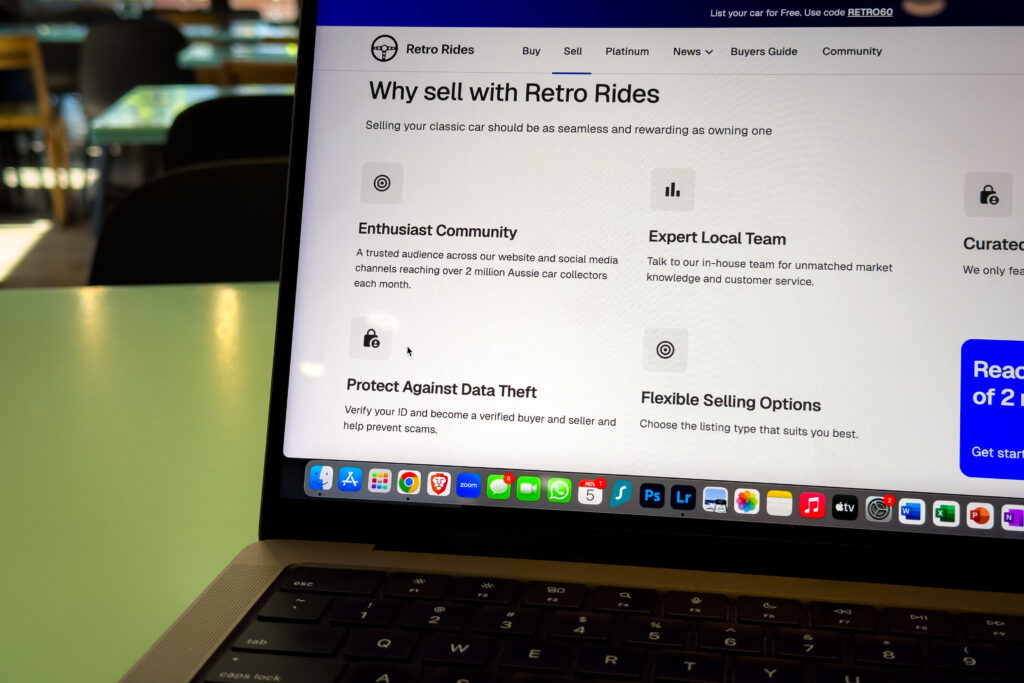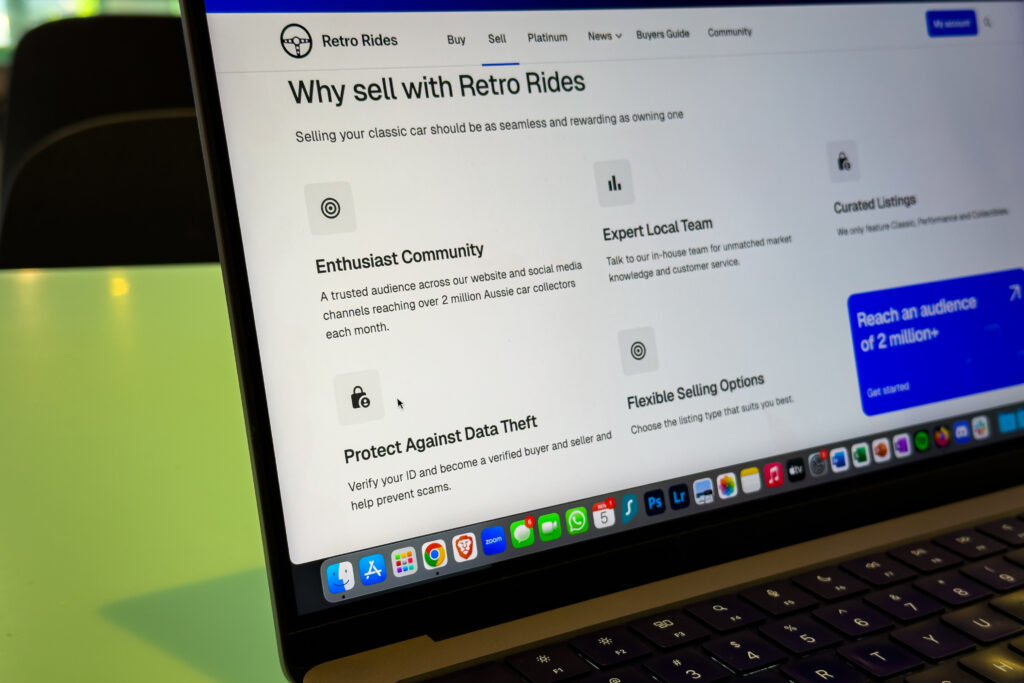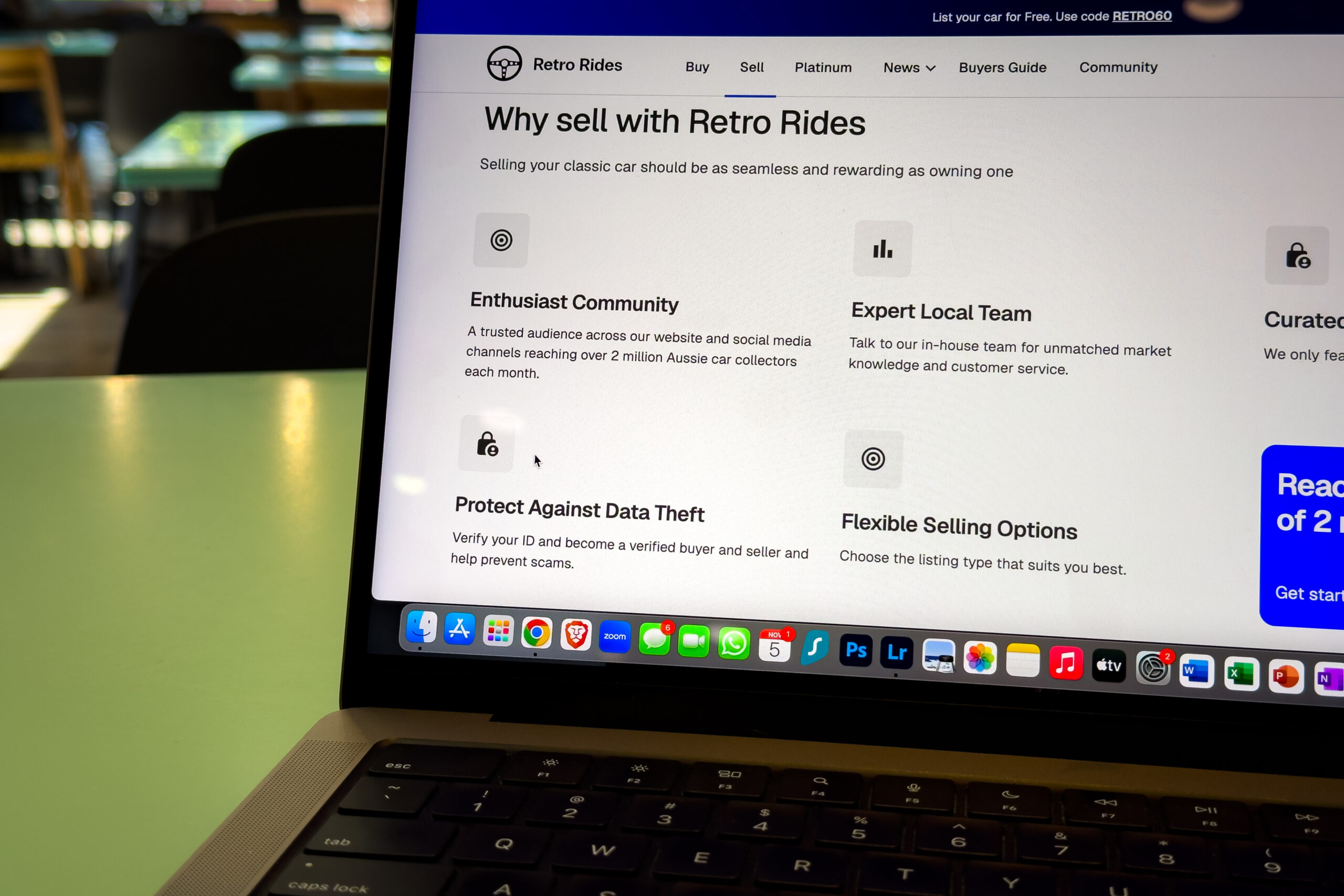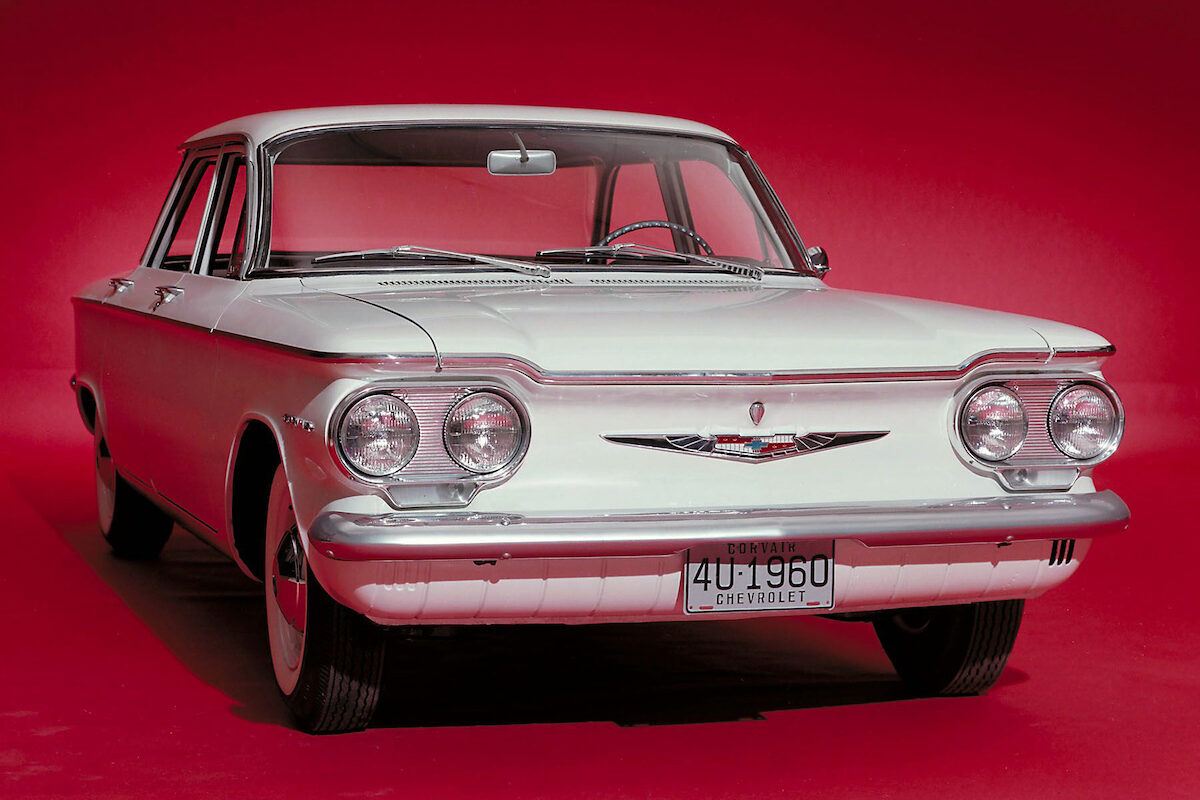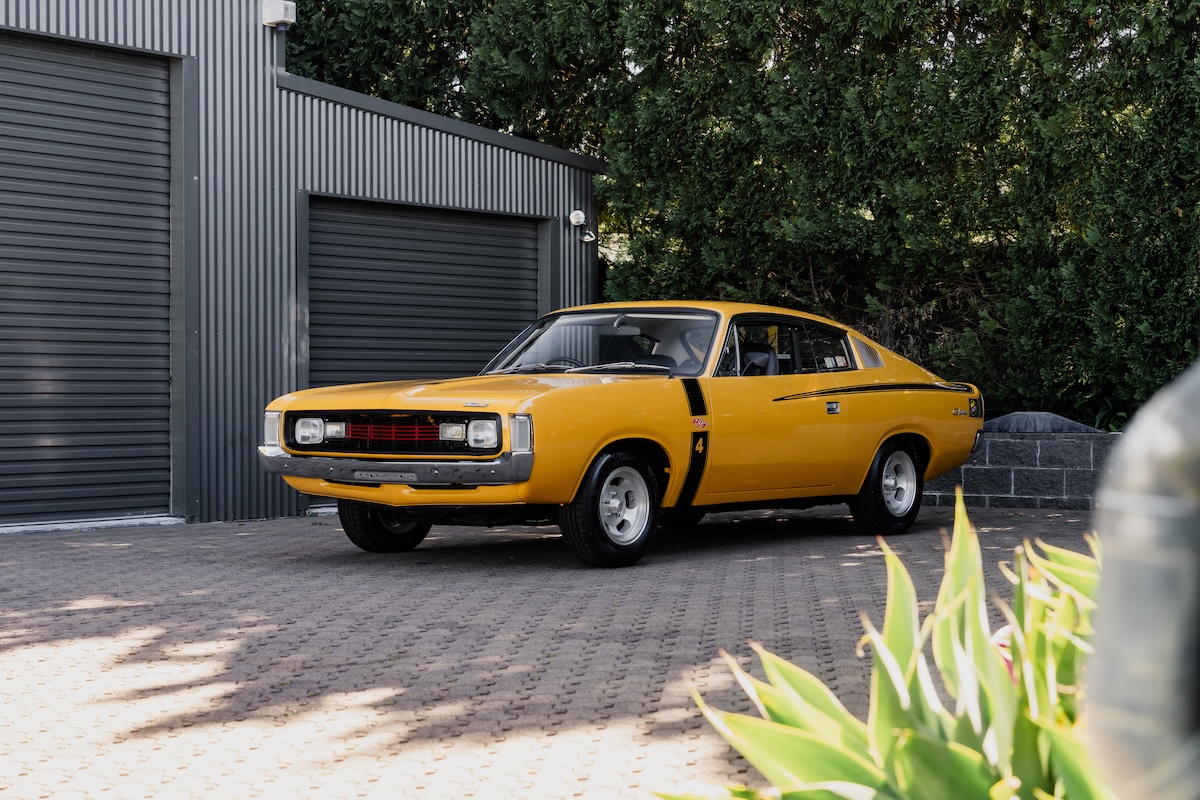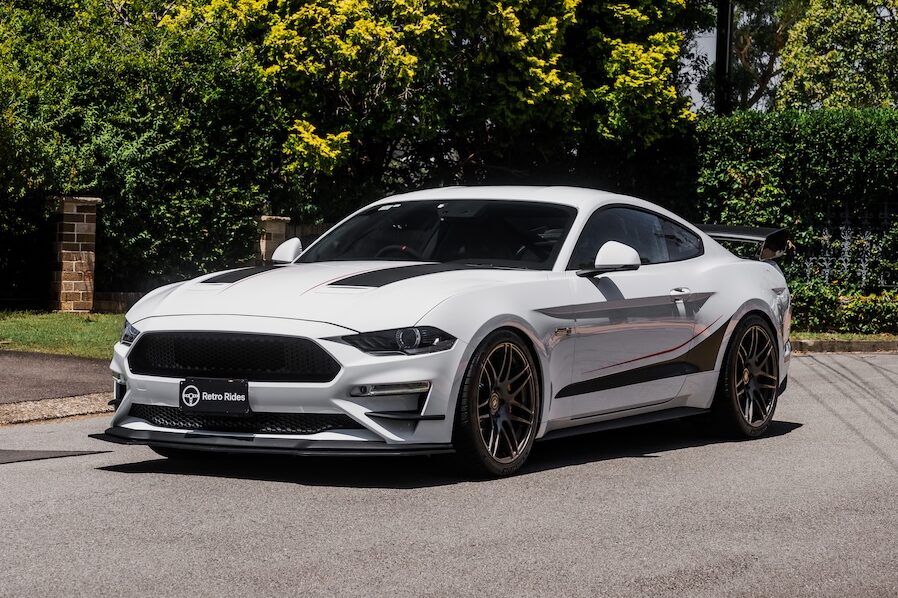As the automotive marketplace has shifted increasingly towards digital transactions, so too has the opportunity increased for unscrupulous operators to trick buyers and sellers out of their money or possessions.
A recent high-profile example was the case of a Sydney grandfather having his HSV Gen-F GTS stolen in front of his eyes by a well-dressed, knowledgeable man who appeared to be a legitimate buyer.
This is far from an isolated incident. In 2024 there were almost 250,000 reports of fraudulent activity to government agency Scamwatch, resulting in more than $300 million worth of losses.
Include reports made to ReportCyber, the Australian Financial Crime Exchange (AFCX), IDCARE and the Australian Securities and Investments Commission (ASIC) and these figures rise to almost 500,000 reports and $2.0 billion in losses.
Over the last five years Australians have lost around $10.5 billion to increasingly sophisticated scams, with men over the age of 60 most at risk, despite improved security from both government agencies and corporations alike.
Most scams are to do with the finance industry, but are increasingly rife when dealing with automotive or vehicle transactions, partly due to the fact large sums of money are often involved. Between 1 January to 31 July 2023, Scamwatch received 761 reports of second-hand vehicle scams with losses of over $1 million.
Why knowledge is the best defence against scams
While you might consider yourself a savvy consumer, the constantly evolving nature of scams – including increasingly elaborate schemes from seemingly reputable sources – means the best defence is knowledge.
As such, and acknowledging that scammers are adept at changing their operating model to stay ahead of consumer defenses, here are some of the most common scam types and how to protect yourself from them.
The easiest way to avoid fraudulent transactions is to verify the details of the person you are dealing with. Insist on sighting identification and record an address and/or phone number if possible, ringing or texting the number to ensure it’s legitimate. Anyone who only wants to conduct business via email or text message should be treated as suspicious.
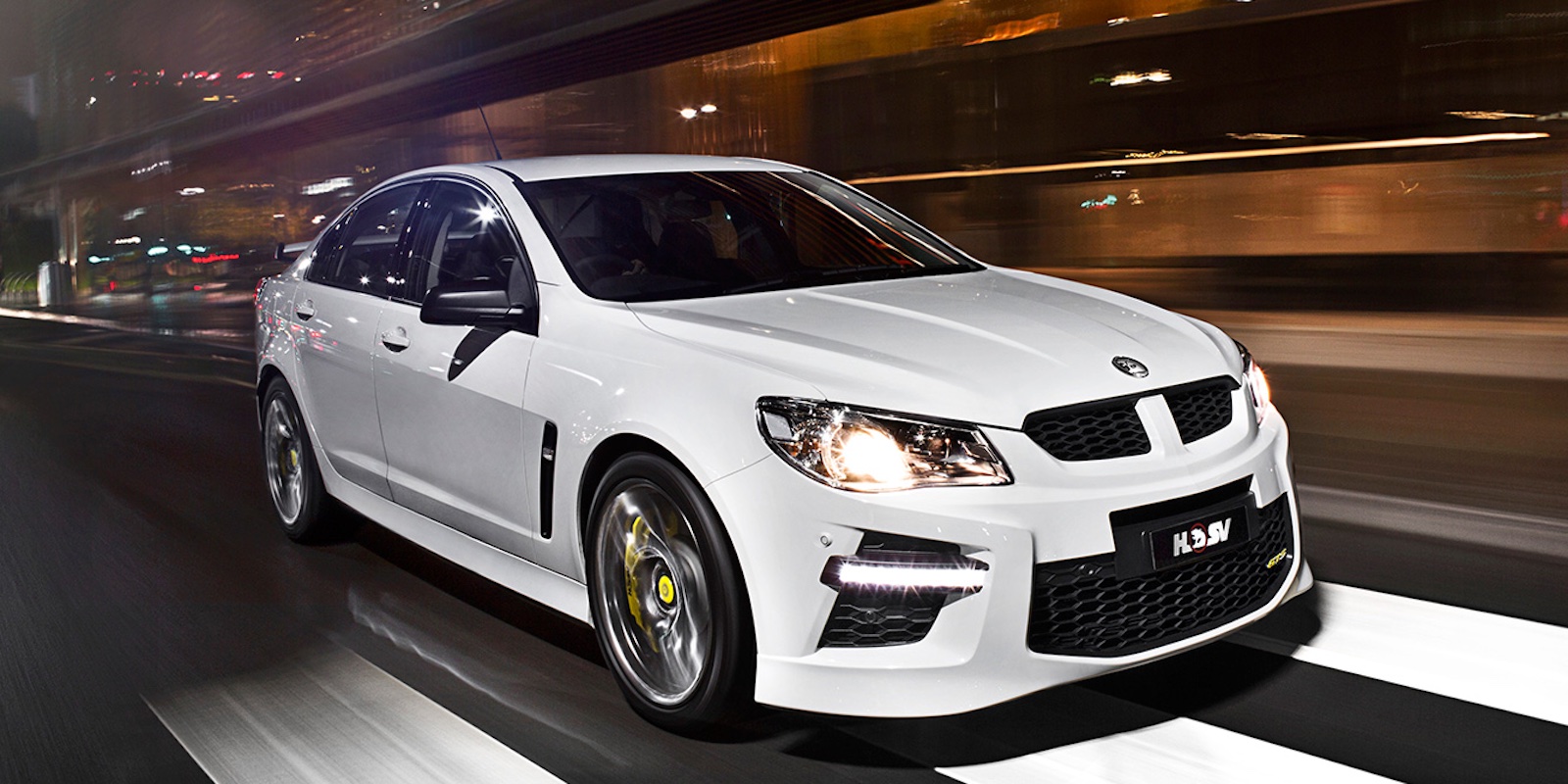
While convenient, unregulated online classified sites like Facebook Marketplace are ideal environments for scammers to operate. Retro Rides is not suggesting that Facebook Marketplace encourages illegal activities, and acknowledges the platform has procedures and practices in place to prevent scams.
However, Retro Rides’ curated classifieds adds additional layers of protection by requiring buyers and sellers are verified before they can use the platform. This is achieved using identification verification services provided by the Attorney General’s Office of the Federal Government.
If a deal sounds too good to be true, it almost certainly is
Another well-established rule of thumb in life, and most certainly in the digital trading space, is that if a deal sounds too good to be true, it almost certainly is.
The ACCC advises: “A price that is too good to be true should be a warning sign for potential buyers. If a classified ad offers a vehicle at a very low price, the ad might not be legitimate. For example, one Scamwatch report noted a listing that advertised a car for nearly $10,000 below its market value to entice buyers looking for a bargain.”
Another example is a Perth-based auto wrecker who became a victim of scammers using the legitimate business as a front for their illegitimate activities, advertising second-hand engines for $3000 that would typically retail for around $10,000.
Why cash is still king
The NSW Police’s Buy, Swap and Sell Smart guide recommends dealing in cash as other methods are open to manipulation.
A scheduled bank transfer can easily be cancelled; buyers have been known to overpay by cheque and then request the cheque be stopped and refunded in cash. The likes of PayID and PayPal do offer some level of buyer or seller protection, but scammers are able to produce extremely convincing email or text receipts. If using these services, always check the funds have been transferred before handing over the goods.
Finally, if possible, have another person present while the transaction is taking place. In the example of the HSV GTS provided earlier in this article, the ‘buyer’ said the boot was open and when the seller got out of the car to close it the car drove off.
NSW police advises: “Be aware when selling a vehicle online there have been instances where a ‘buyer’ takes the car on a test drive and never returns or, on an accompanied test drive, forces the owner from the car and steals it. Never leave the buyer alone with access to the vehicle.”
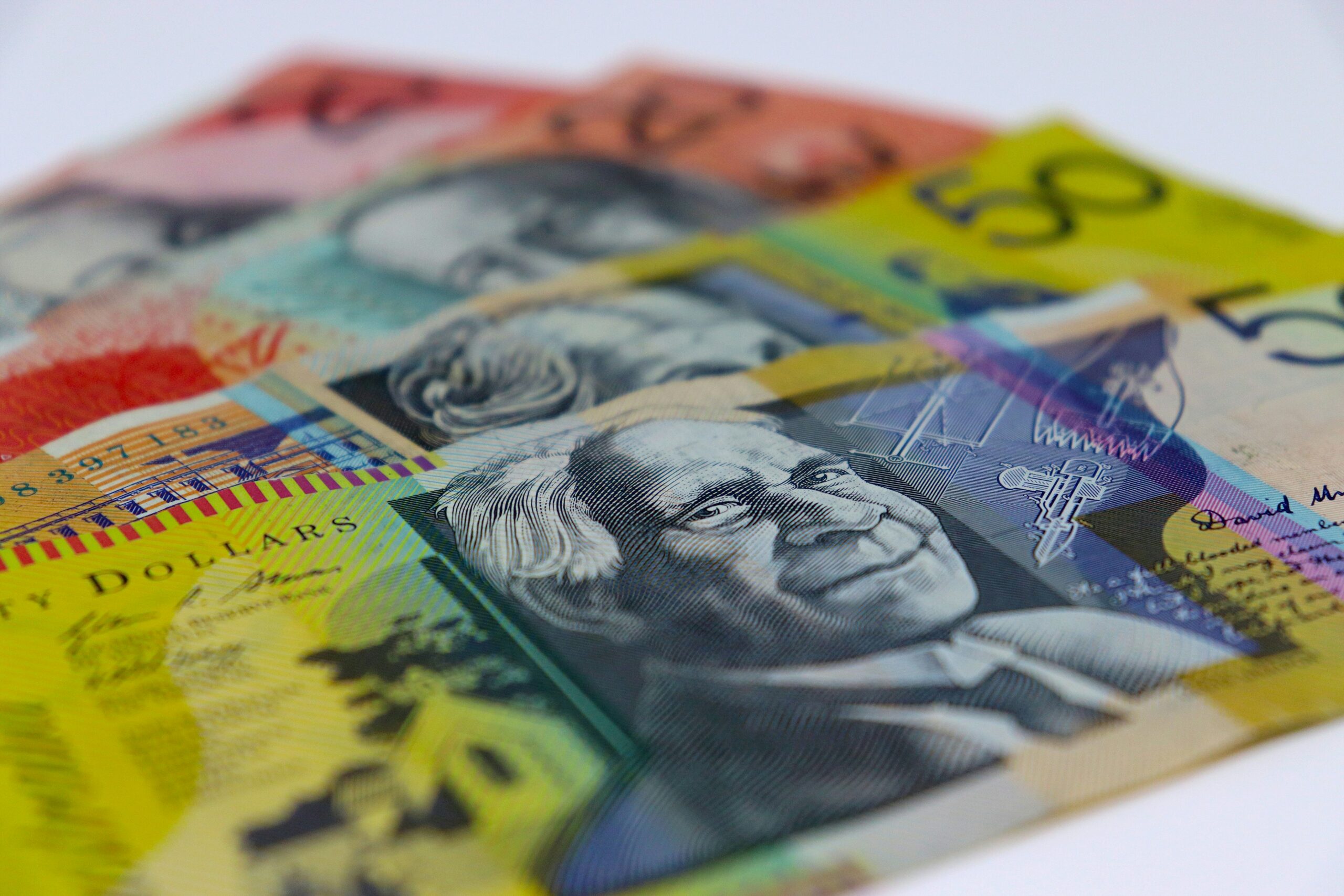
How to identify common techniques used by fake buyers
When it comes to fake buyers, the most common scenario is for the seller to receive a message from someone who is happy with the condition and price of the vehicle but claims to live in a remote area with poor phone reception and thus requires communication by email.
The scammer then asks for PayPal or bank details and a pickup address so they can arrange a courier, before claiming to have sent the agreed price and delivery costs and asking if the seller can then pay for the courier on their behalf.
Typically, fake (but legitimate looking) payment receipts are provided with instructions that the funds are on hold until the courier is paid. Alternatively, the ‘buyer’ will claim to have accidentally overpaid and request the excess is transferred back – regardless, the money won’t be seen again. Be aware, legitimate organisations will never request money be sent to a third party before funds are released.
Scammers will also pose as buyers to steal personal information. While it’s reasonable for some level of identification to be requested, be highly suspicious of anyone who wants to photograph your ID or wants all the numbers on a driver licence or similar. This information can then be used by the scammer to target and potentially gain access to all manner of other legitimate services you use, such as bank accounts.
Even sophisticated buyers can fall victim to fake sellers
Fake sellers, which make up around 70 percent of used car scams, can be even more cunning.
One of the most common selling scams is for a vehicle to be advertised at an attractively low price with the backstory that it needs to be sold quickly, sometimes due to a divorce but commonly due to a Defence Force member being redeployed.
Once again, buyers are asked to transfer funds through a third-party website at which point communication ceases. An email address in the correct Defence Force format is not sufficient proof of identity, as email addresses can be spoofed and redirected.
A Retro Rides team member fell victim to a different kind of selling scam, explaining that prior to being scammed he had successfully bought and sold cars and other items online for more than 20 years.
“In 2023, I was caught by a sophisticated scam. I was looking to buy a 2.5-tonne excavator and found an advertisement on a Facebook group that took me to what appeared to be an extremely legitimate website,” they explain.
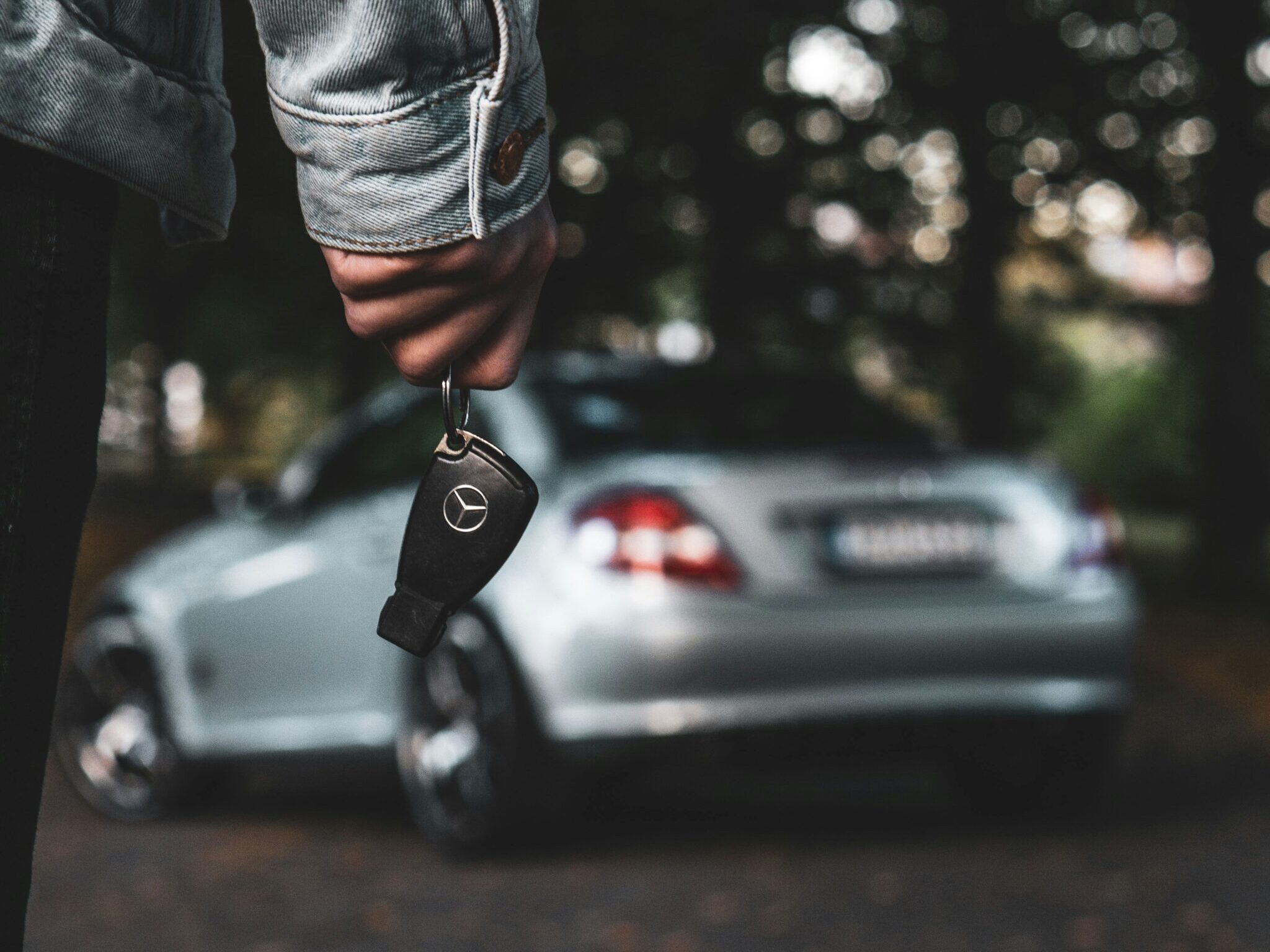
“I was aware that heavy equipment classifieds were rife with scams so I tried to be careful; I discounted many as there were obvious signs, like US vehicles in the background or the wrong types of trees for Australia.
“The person I spoke with on the phone was Australian and seemed very knowledgeable about the machinery. I also googled their ABN and it matched the business name, which I later discovered the scammers had hijacked from another business. I even cross-referenced the address on Google, and it turned out to be a real industrial address.
“The machine was supposedly in Melbourne, and I am in Sydney so after more communication we agreed on a deal and I paid a 50 percent deposit with the remainder payable on delivery.
“And that is where the communication [from the purported vendor] stopped. I lodged a police report to no avail, [with] the police telling me my money was gone.
“The feeling of self-loathing that followed the shock was immediate – how could I have been so stupid?”
In terms of how he might have avoided this scenario, our in-house scam victim believes the main things he failed to do in his pre-purchase research was to get a video walk around of the machine and an ID check on the seller.
Nor is this behaviour limited to complete cars. Owner groups on Facebook are littered with posts about sellers advertising fake or non-existent goods, with legitimate part numbers often being supplied regarding parts that are poor-quality replicas. These scammers often use the identities of real businesses to entice victims. It bears repeating: if the price seems too good to be true, it probably is.
Retro Rides founder and managing director Cameron Jurd said it was incidents like this that prompted him and the broader team to implement ID verification on the site.
“The reality is that these operators are highly sophisticated. This experience is why I’m so determined that Retro Rides offer ID verification, a free service for our users ensuring both buyers and sellers are verified,” he said.
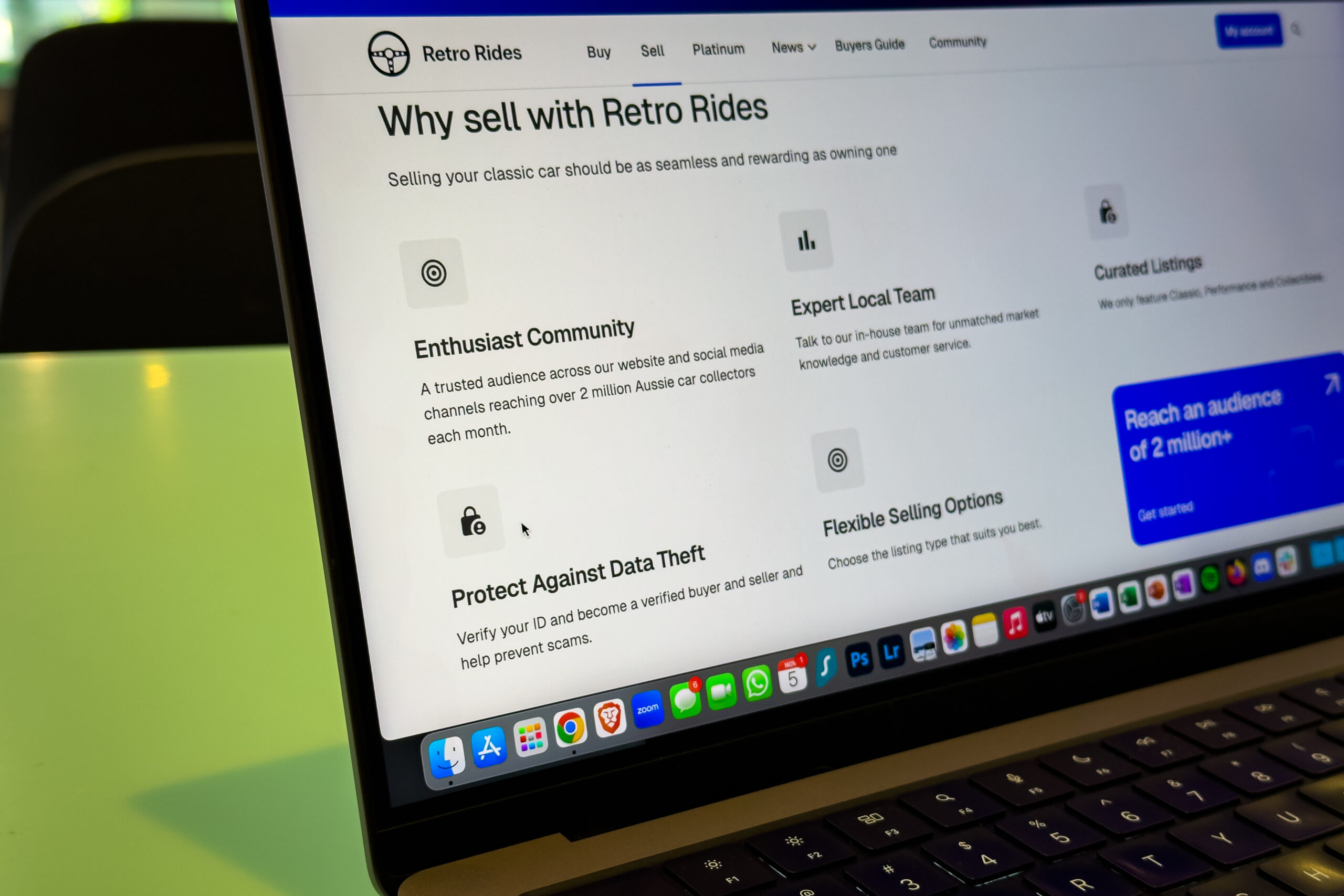
How to minimise the risk of being caught in a fake seller scam
Thankfully, there are steps that can be taken to minimise the risk of being caught in a fake seller scam.
- Do not deal with anyone who wants to communicate only by email or text.
- Do not deal with anyone who will only accept payment by bank transfer or a third-party website.
- Be wary of anyone who has a deadline on the sale.
- Get the vehicle inspected by a professional and/or do a VIN check, get a report from the Personal Property Securities Register (PPSR) and check the Written-Off Vehicles Register (WOVR).
- View the vehicle’s service history to ensure the odometer hasn’t been tampered with.
- Reverse image search the classified images via Google to see if they’ve been used elsewhere.
If you have been the victim of a scam, the most important thing to do is notify your bank or card provider to ensure any transactions are stopped. It’s also worthwhile informing ScamWatch at Scamwatch.gov.au.
You can also contact IDCARE, a not-for-profit organisation that provides response plans to Australian and New Zealand residents who have been the victim of scams or identity theft. Finally, report the scam to Scamwatch you can make a police report online by reporting the scam to Scamwatch.
Counselling is also available through Beyond Blue on 1300 224 636 or Lifeline on 13 11 14.


